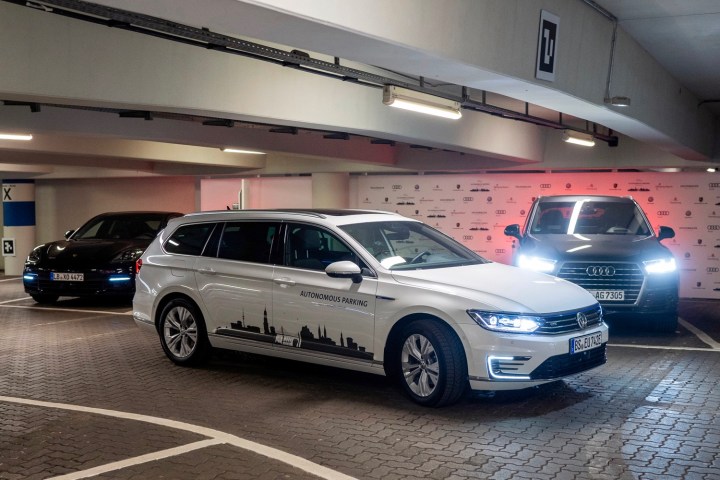
The efforts required to bring autonomous cars to the masses are so immense that car and technology companies can’t do it alone. The Volkswagen Group of America and major players in the automotive innovation industry like Bosch and Nvidia have joined forces to pool their resources and expertise in a bid to accelerate the development of driver-less technology.
The newly formed Networking for Autonomous Vehicles (NAV) Alliance was created to drive the ecosystem required for the next generation of multi-gig Ethernet networking in vehicles, according to its mission statement. Its aim isn’t to develop the core technology required for cars to drive themselves; instead, it wants to improve and secure the thought process autonomous cars follow to gather, analyze, and store information about the world around them.
The NAV Alliance envisions a robust networking architecture reliant on ECUs, CPUs, GPUs, high-definition cameras, sensors, gateways, and storage devices connected through a high-speed Ethernet network. This architecture will, for example, safely and reliably transfer data from a sensor integrated into the car’s grille to its onboard computer, or from the onboard computer to a vehicle traveling in the other lane.
Standardization is a key aspect of making autonomous cars a reality for the average motorist. In simple terms, cars need to all speak the same language. One of the NAV Alliance’s goals is to build consensus for new technologies related to in-car networking and promote a common set of standards among manufacturers, suppliers, and different nations. If Canada and the United States adopt different standards, an American passenger in an autonomous car will need to take the wheel as soon as his or her car crosses the border to the north (and vice versa). Similarly, if a Chevrolet and a Dodge won’t talk to each other, odds are they’ll crash.
“The Volkswagen team is looking forward to collaborating with other alliance members to advance the safety and ease of use for autonomous vehicles while bringing them to market faster,” said Matthias Erb, Volkswagen Group of America’s chief engineering officer and executive vice president, in a statement.
As of June 2018, the list of companies in the NAV Alliance includes the Virginia-based Volkswagen Group of America, German suppliers Bosch and Continental, chipmaker Nvidia, and connectivity specialist Aquantia. They’re open to working with other automakers and suppliers — even rivals — in the coming months and years to expand the roster of members.
Editors' Recommendations
- Ford and VW close down Argo AI autonomous car unit
- 2021 Volkswagen ID.4 aims to (finally) bring electric cars to the masses
- Volkswagen’s friendly looking robot would autonomously charge electric cars
- Mercedes-Benz and Bosch are starting an autonomous shuttle service in California
- Inside Volkswagen’s plan to finally bring affordable electric cars to the masses





